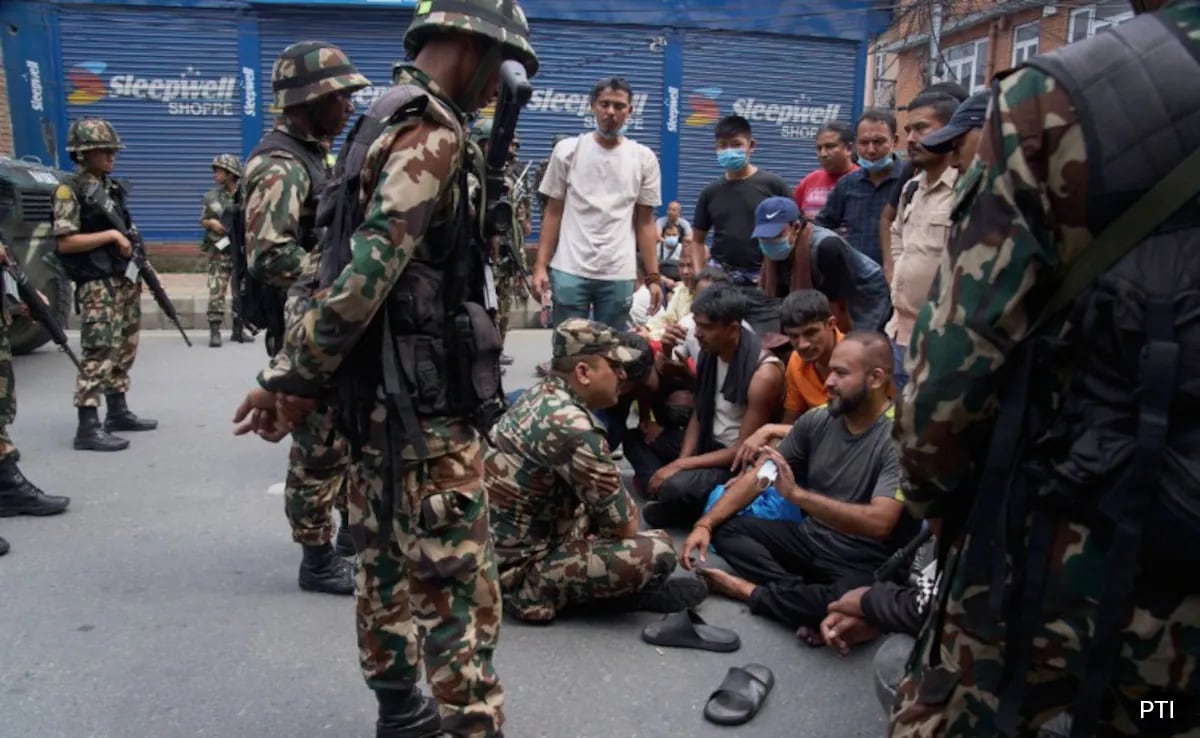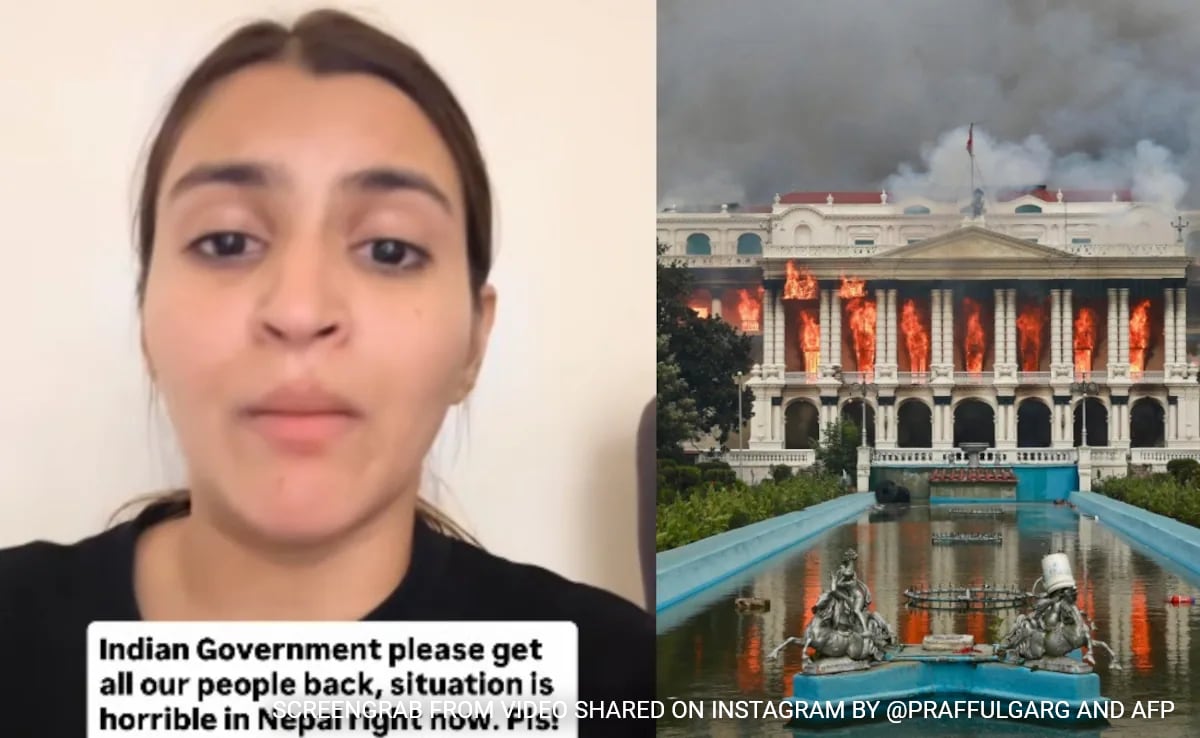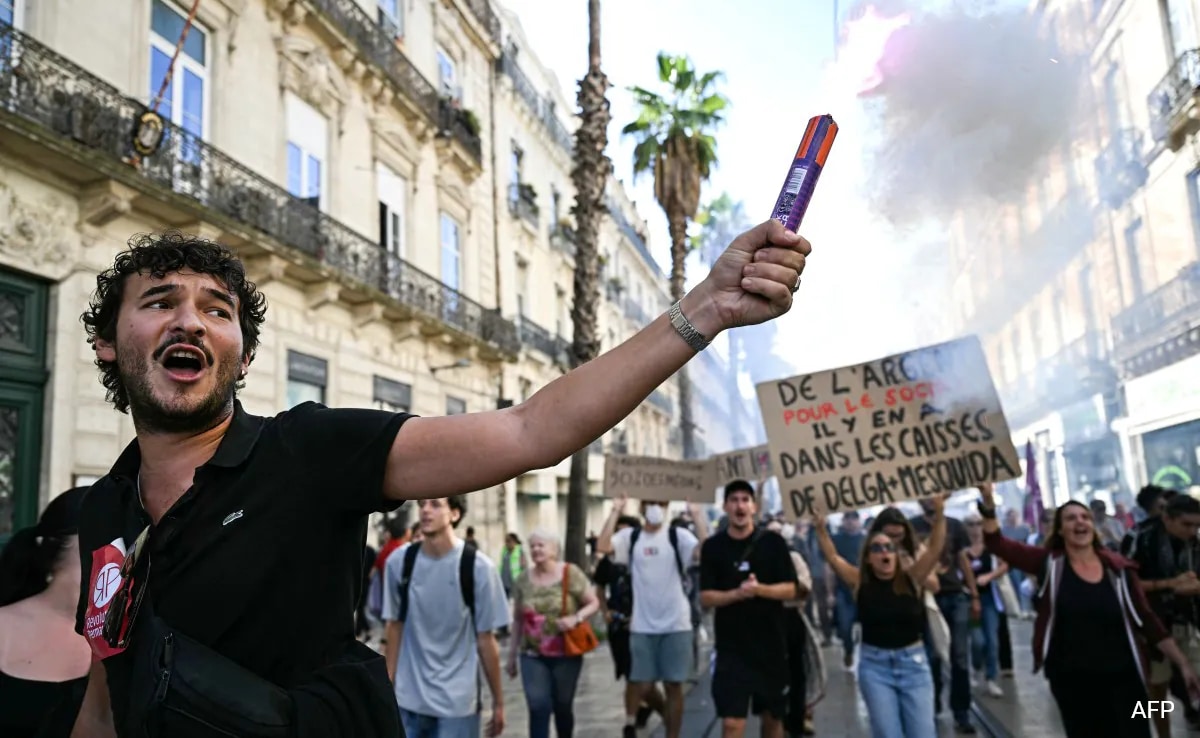“Good to see you again,” Biden replied. “Last time we did not get to see each other at the G-20. I hope next time we can meet in person.”
The Kremlin has made clear that it wants the United States to promise not to allow Ukraine admission into NATO, as well as guarantees that NATO will not expand east in terms of certain military activities around Ukraine — a message Putin is expected to reiterate on Tuesday’s call.
Biden, meanwhile, has made clear that the United States does not plan to accede to Russia’s demands, telling reporters Friday, “I don’t accept anybody’s red lines.”
The United States is expected to lay out “substantial economic countermeasures” in the form of sanctions, a senior administration official said Monday.
Kremlin spokesman Dmitry Peskov warned Tuesday morning that the meeting would be “quite long” and that it was unlikely to produce “breakthroughs.” Biden similarly said on Friday that he anticipated “a long discussion” with Putin.
Speaking to reporters Monday, White House press secretary Jen Psaki reiterated that Biden’s objective on the call remains the same as it has been since he took office: not to escalate the relationship but “to move to a more stable footing in the relationship.”
She also stressed that it remains unclear if Putin has yet made a final decision about invading Ukraine.
U.S. intelligence, however, believes that Moscow may be planning a multi-front offensive into Ukraine as early as next year involving as many 175,000 troops, according to U.S. officials and an intelligence document obtained by The Washington Post.
Both publicly and privately, administration officials have been hesitant to telegraph just how far the United States is prepared to go, including the potential use of military force, if Russia moves ahead and invades Ukraine.
Asked what Biden is willing to threaten beyond sanctions if Russia invades Ukraine, Psaki said Monday, “It’s not about threats.”
“It’s about conveying that the right path forward here is through diplomacy,” she said. “In the meantime, on financial sanctions, we have consulted significantly with our allies and believe we have a path forward that would impose significant and severe harm on the Russian economy. You can call that a threat. You can call that a fact. You can call that preparation — whatever you want to call it. But that is something we’ve talked about publicly, and certainly, the president would convey that, as well.”
Though Ukraine’s ascension to NATO has long appeared remote, Russia is concerned with the amount of cooperation it has with the alliance, including on military assistance, analysts said.
Amid the escalation, Russian officials have claimed it’s Moscow — not Kyiv — that is under threat.
In an address to Russia’s Foreign Ministry Board in November, Putin warned that the West hasn’t taken Russia’s “red lines” seriously enough. He noted that the United States and its allies supply Kyiv with lethal weapons, conduct “provocative” military exercises in the Black Sea, and fly strategic bombers just 12 miles from Russia’s borders.
He has also warned against stationing missile defense systems in Ukraine similar to those in Romania and Poland, claiming that they could be secret offensive weapons capable of reaching Moscow within 10 minutes.
Dmitri Trenin, director of the Carnegie Moscow Center, said that even if Washington gave Moscow the guarantees it is seeking, “they probably wouldn’t be completely trusted by Russia.”
“The Russian strategy appears to be using military force deployments and movements to make the U.S. take Russian security concerns seriously and engage in a productive dialogue,” Trenin said.
Moscow considers Biden “as a sensible person who, all rhetoric aside, understands his responsibility when confronting a fellow nuclear superpower,” Trenin added.
The two leaders met in person in June, at a summit in Geneva, that included three hours of face-to-face talks but little in the way of tangible deliverables. Still, at the time, both sides dubbed the summit a success, saying it had achieved its goal of opening lines of communication between the two countries to head off potential catastrophes.
In public, top Biden administration officials are sending increasingly serious warnings about Putin’s capacity to attack Ukraine. A top State Department official plans to tell senators later Tuesday that the United States will work in tandem with allies to impose “severe consequences” on Moscow should it invade Ukraine, including “high-impact economic measures” that the United States has declined to use in the past against Russia.
“We don’t know whether Russian President Putin has made a decision to attack Ukraine or overthrow its government but we do know he is building the capacity to do so,” Victoria Nuland, the No. 3 official at State, will tell the Senate Foreign Relations Committee in her opening remarks, a copy of which was obtained by The Post in advance.
Nuland will add, according to her testimony: “Much of this comes right out of Putin’s 2014 playbook, but this time, it is on a much larger and more lethal scale. So, despite our uncertainty about exact intentions and timing, we must prepare for all contingencies, even as we push Russia to reverse course.”
Nuland came to Capitol Hill on Monday night to privately brief members of the Foreign Relations Committee ahead of Biden’s phone call Tuesday, as both Democratic and Republican senators urged the administration to ready harsh economic sanctions against Putin.
Foreign Relations Committee Chairman Robert Menendez (D-N.J.) said he believes that the Biden administration has prepared a “robust” package of sanctions against Russia, as he pushed for Washington to send “clear, unequivocal and powerful messages to Putin” as Moscow continues its massive buildup of troops at the Russia-Ukraine border.
“Sanctions are always more powerful when they can be multilateral, and I think they’ve been working on them pretty assiduously,” Menendez said after leaving the briefing with Nuland at the Capitol.
In some ways, regardless of the outcome, the mere fact of Tuesday’s phone call is meaningful.
“This is a working conversation taking place at a very difficult moment,” Peskov said. “The very fact of communication between the presidents is good.”
.png)











 English (United States) ·
English (United States) ·  Turkish (Turkey) ·
Turkish (Turkey) ·